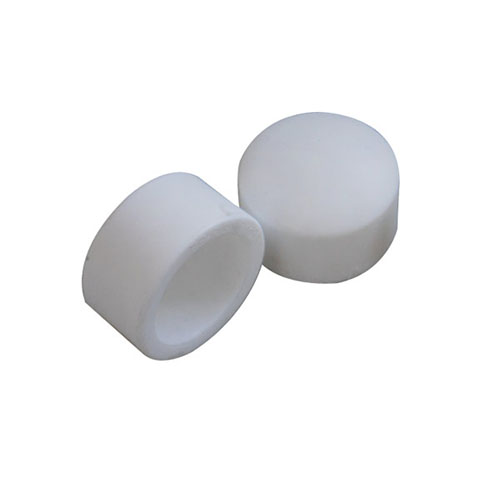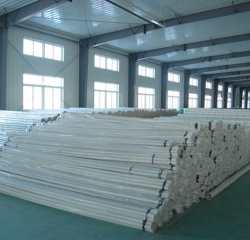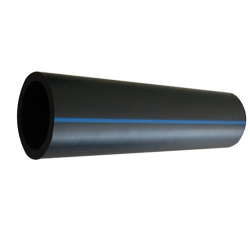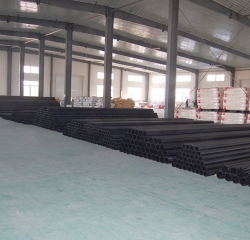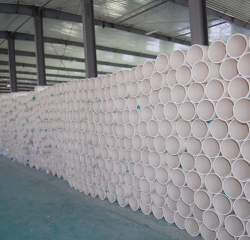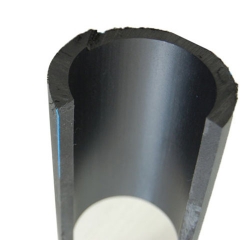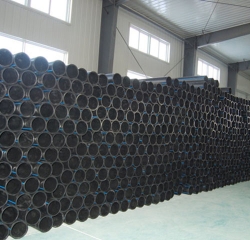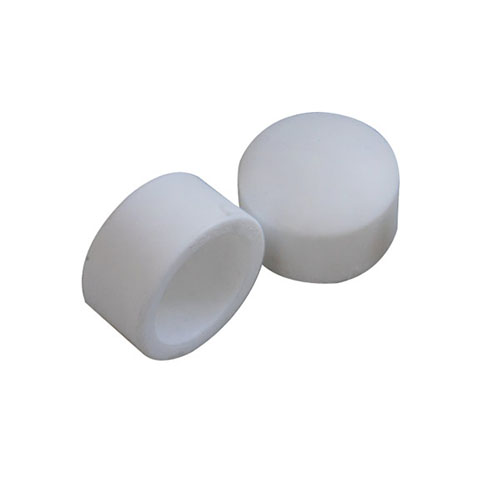
Compared with traditional cast iron pipes, galvanized steel pipes, cement pipes and other pipes, PPR pipes have the advantages of energy saving, environmental protection, light weight and high strength, corrosion resistance, smooth and non-scaling inner wall, simple construction and maintenance, long service life, and are widely used in building water and drainage, urban and rural water supply and drainage, urban gas, electric power and optical cable sheath, etc. Industrial fluid transport, agricultural irrigation and other construction, municipal, industrial and agricultural fields.
In recent years, with the increasing market demand of construction industry, municipal engineering, water conservancy engineering, agriculture and industry, China's PPR pipe industry has shown a rapid development trend. According to the survey, the production of plastic pipes in 2009 was 5.804 million tons, an increase of 18.9% over the same period last year. The production of plastic pipes in January-September 2010 was 5.528 million tons, an increase of 28.23% over the same period last year. At the same time, with the continuous improvement of consumers'requirements for environmental protection, health and durability of products, the production of plastic pipes in China is increasing, the quality of products is improving, the technological progress of the industry is accelerating, the number of brand-scale enterprises is increasing, new materials and new structural varieties are emerging, and advanced systems are emerging. The concept of unified design emerges one after another, the function of the product is more obvious, and the application field is further widened. According to the analysis, the proportion of China's plastic pipe market share in all pipelines has exceeded 30%.
By 2015, 85% of the new, rebuilt and expanded construction projects in China will be constructed with plastic pipes, 80% of the rainwater pipes will be constructed with plastic pipes, 50% of the plastic pipes used in urban drainage pipes, 85% of the building water, hot water supply and heating pipes will be constructed with plastic pipes, and 80% of the urban water supply pipes (below DN 400 mm) will be constructed with plastic pipes. Ninety percent of the water supply pipes in villages and towns are plastic pipes, 40 percent of the city gas pipes (medium and low pressure pipes) are plastic pipes, and 90 percent of the building wire threading sleeves are plastic pipes. It is predicted that the production of plastic pipes in China will maintain a growth rate of about 10% during the 12th Five-Year Plan period. By 2015, the production of plastic pipes in China is expected to be close to 12 million tons, and the market share of plastic pipes in all kinds of pipes in the country will exceed 60%.
PPR pipe, officially named random copolymer polypropylene pipe, is one of the most widely used water supply pipelines in the domestic engineering. PPR is a random copolymer of polypropylene (PP and PE) synthesized by vapor phase method. Its structural feature is that the polypropylene molecule is irregularly linked in the PP molecule with molecular weight ranging from 300,000 to 800,000. PPR pipes, also known as random copolymer polypropylene pipes, were developed and applied in the late 1980s and early 1990s. With its excellent performance and wide range of applications, it has occupied a place in the plastic pipe market and is recognized as a green environmental protection product. However, in recent years, the market operation, the above PPR plastic pipe quality analysis examples found that there are many problems in the PPR pipe market, these problems to a large extent restricted the sound development of PPR pipe.
Compared with traditional cast iron pipes, galvanized steel pipes, cement pipes and other pipes, PPR pipes have the advantages of energy saving, environmental protection, light weight and high strength, corrosion resistance, smooth and non-scaling inner wall, simple construction and maintenance, long service life, and are widely used in building water and drainage, urban and rural water supply and drainage, urban gas, electric power and optical cable sheath, etc. Industrial fluid transport, agricultural irrigation and other construction, municipal, industrial and agricultural fields.
In recent years, with the increasing market demand of construction industry, municipal engineering, water conservancy engineering, agriculture and industry, China's PPR pipe industry has shown a rapid development trend. According to the survey, the production of plastic pipes in 2009 was 5.804 million tons, an increase of 18.9% over the same period last year. The production of plastic pipes in January-September 2010 was 5.528 million tons, an increase of 28.23% over the same period last year. At the same time, with the continuous improvement of consumers'requirements for environmental protection, health and durability of products, the production of plastic pipes in China is increasing, the quality of products is improving, the technological progress of the industry is accelerating, the number of brand-scale enterprises is increasing, new materials and new structural varieties are emerging, and advanced systems are emerging. The concept of unified design emerges one after another, the function of the product is more obvious, and the application field is further widened. According to the analysis, the proportion of China's plastic pipe market share in all pipelines has exceeded 30%.
By 2015, 85% of the new, rebuilt and expanded construction projects in China will be constructed with plastic pipes, 80% of the rainwater pipes will be constructed with plastic pipes, 50% of the plastic pipes used in urban drainage pipes, 85% of the building water, hot water supply and heating pipes will be constructed with plastic pipes, and 80% of the urban water supply pipes (below DN 400 mm) will be constructed with plastic pipes. Ninety percent of the water supply pipes in villages and towns are plastic pipes, 40 percent of the city gas pipes (medium and low pressure pipes) are plastic pipes, and 90 percent of the building wire threading sleeves are plastic pipes. It is predicted that the production of plastic pipes in China will maintain a growth rate of about 10% during the 12th Five-Year Plan period. By 2015, the production of plastic pipes in China is expected to be close to 12 million tons, and the market share of plastic pipes in all kinds of pipes in the country will exceed 60%.
PPR pipe, officially named random copolymer polypropylene pipe, is one of the most widely used water supply pipelines in the domestic engineering. PPR is a random copolymer of polypropylene (PP and PE) synthesized by vapor phase method. Its structural feature is that the polypropylene molecule is irregularly linked in the PP molecule with molecular weight ranging from 300,000 to 800,000. PPR pipes, also known as random copolymer polypropylene pipes, were developed and applied in the late 1980s and early 1990s. With its excellent performance and wide range of applications, it has occupied a place in the plastic pipe market and is recognized as a green environmental protection product. However, in recent years, the market operation, the above PPR plastic pipe quality analysis examples found that there are many problems in the PPR pipe market, these problems to a large extent restricted the sound development of PPR pipe.


